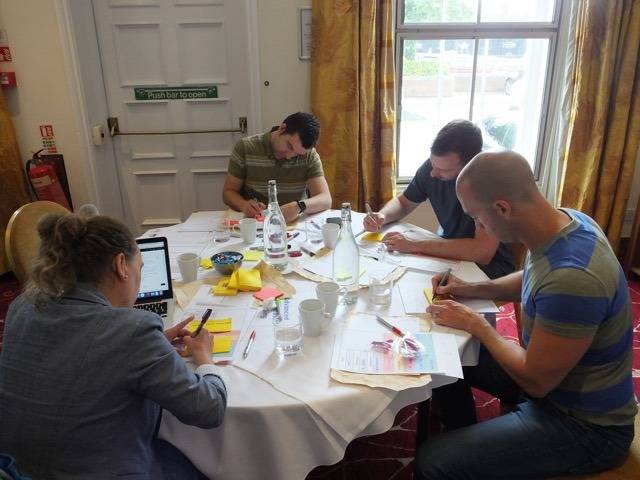Following on from Part 1 in my journey - last week, I attended an Advanced Scrum Master course with Jolie, one of Unboxed’s resident (and very experienced) Scrum Masters.

Coming from a corporate project management background, my focus has been on delivery delivery delivery for over a decade. Things get done, but one of the less positive results is that the amount of time I’ve been able to spend nurturing my team has been less than I’d have liked.
Getting to spend two whole days with a group of experienced Scrum Masters has helped me get a firm handle on the context shift I’m undertaking in the transition from Project Manager.
There was a real mix of opinions about how much Scrum is about software delivery versus coaching teams to become self managing. Personally, I’ll always treat software delivery as a high priority, after all that’s why I like being agile … to effectively deliver the right product.
However, it did make me think a lot more about the self-management aspect of Scrum, which, after all, is also a key component of what it’s all about.

Moving to a collaborative rather than dictatorial approach of working means that I need to get used to using a wider variety of facilitation and coaching techniques which in the past seemed more of a luxury.
It’s really important that in a self-managing team people feel that their voices are going to be heard, that their opinions and insights are valued and that the team can decide on what the appropriate course of action is.

These aren’t necessarily things that just happen. As a facilitator and coach you need to foster an environment in which trust and communication can grow, where discussion can be wide ranging but can still reach a consensus.
When I did my Scrum Master Certification, it was a great experience, it embedded the Scrum process in my mind far more than just reading about it could. However, I was thinking mainly about the process and roles as concepts, rather than the nuances of facilitating teams and coaching people.
This further training has given me a set of techniques and insights that I’ll be able to use to help the teams I work with have more productive conversations and achieve a consensus

Some of the highlights for me were: learning techniques to arrive at consensus, the personal eureka moment that not every project conversation has to generate actions, learning the importance of retrospectives as catharsis and using games to build trust.

So, bring on month number two at Unboxed, it’s time to flex those facilitation muscles a bit more!

